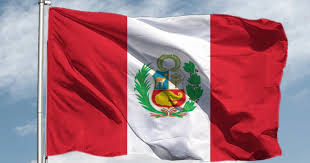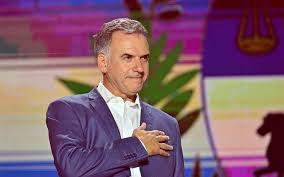
PORT-AU-PRINCE, March 16 (NNN-AGENCIES) — Protesters burned tyres and blocked roads in Haiti on the second day of a strike by doctors, nurses and other health professionals over a spike in gang-related kidnappings that have further destabilised the crisis-stricken island.
The three-day strike began on Monday and included the shutting down of public and private health institutions in the capital Port-au-Prince and beyond, with only emergency rooms accepting patients.
“We are living a catastrophic situation where no one is protected,” said Dr Louis Gerald Gilles, who closed his private practice on Tuesday in the neighbourhood of Delmas to protest the recent kidnappings of two doctors.
“No professional is protected. Today, it could be a doctor; tomorrow, they could enter the office of a lawyer or an architect.”
The strike came amid a 180-percent increase in kidnappings for ransom in Haiti in the past year, with 655 of them reported to police, according to a United Nations report (PDF) from mid-February. Authorities believe the number is much higher since many kidnappings go unreported.
“No social group was spared; among the victims were labourers, traders, religious leaders, professors, medical doctors, journalists, human rights defenders and foreign citizens,” the report stated.
The most recent kidnappings of two doctors have further fuelled fears among the staff at Port-au-Prince’s General Hospital, where union workers gathered on Tuesday. They said conditions had become increasingly dysfunctional since the July 7 killing of Haitian President Jovenel Moise.
They also accused the administration of Prime Minister Ariel Henry of not releasing sorely needed funds to the Ministry of Health for basic services, adding that they were worried about the lack of security.
“They can walk in here, grab anyone and leave with no worry,” said Guerline Jean-Louis, a 44-year-old hospital janitor who joined the strike. “This is why we support the movement.”
The strike also came amid a rise in the number of Haitians leaving the country by land and sea.
US officials said 140 Haitian asylum seekers came ashore on Monday on Summerland Key, about 32km from Key West, Florida.
Earlier this month, a wooden boat carrying 300 Haitians grounded in shallow water off Key Largo, and 163 people swam ashore near the Ocean Reef Club. Many needed medical treatment. Another boat carrying 176 Haitians was stopped in January just off the Florida Keys, the US Coast Guard said.
So far this fiscal year, which began on Oct 1, US Coast Guard crews have rescued 1,193 Haitians. That compared with 1,527 Haitians who were rescued in all of the 2021 fiscal year; 418 in 2020, and 932 in 2019, the Coast Guard said.
But the US has rapidly expelled most Haitian asylum seekers under a contentious public health directive meant to curb the spread of COVID-19. Thousands were expelled after crossing the US-Mexico border in September and setting up camp under a bridge in Del Rio, Texas.
Back in Haiti, some patients, including Mario Fleurimon, were unaware of the strike.
On Tuesday, the 39-year-old primary school teacher strode into a medical complex that was empty except for a lone security guard.
While frustrated that he was unable to see a doctor for his diabetes, he said he supported the strike. “There should be a general rising up to fight the insecurity,” he said.
In a recent statement, Haiti’s medical association demanded that the government push to have the doctors released without conditions and implement measures to “stop the wave of insecurity that strips us of our fundamental freedom to go freely about our lives”.
The strike by health professionals is scheduled to end on Wednesday, while another strike by the Association of Owners and Drivers in Haiti is expected to start on Thursday.
The association is protesting the theft of vehicles in the Port-au-Prince community of Martissant, ground zero for warring gangs who have kidnapped or killed several civilians, many of them on board public buses. — NNN-AGENCIES



